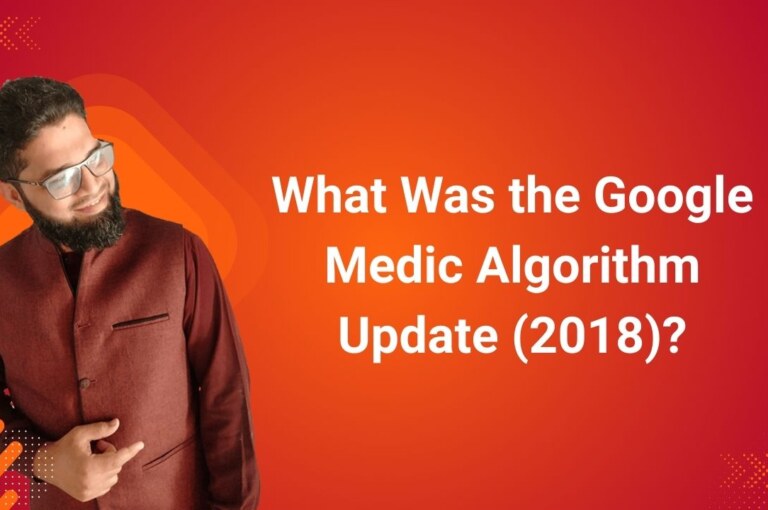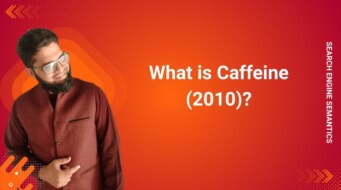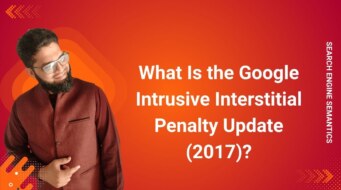What Was the Google Medic Algorithm Update (2018)?
The Google Medic Algorithm Update, rolled out in August 2018, represents one of the most important turning points in modern SEO. While Google officially classified it as a broad core algorithm update, its real legacy lies in how strongly it reshaped Google’s approach to content quality, trust, and credibility, especially for sensitive topics.
This pillar article explains what the Medic Update was, why it happened, how it connects to E-A-T and YMYL, which sites were affected, and how it permanently changed SEO best practices. Throughout the guide, you’ll find contextual internal links to related concepts from your SEO terminology corpus to reinforce topical authority and semantic depth.
What Was the Google Medic Algorithm Update?
The Google Medic Update was a large-scale adjustment to Google’s search engine algorithm that began on August 1, 2018. Unlike niche updates such as Google Penguin or Google Panda, this update was part of Google’s recurring algorithm update cycle, designed to improve how the system evaluates content quality across the entire index.
What made this update unique was the pattern of impact. A disproportionately large number of websites in health, medical, and wellness niches experienced ranking volatility, prompting the SEO community to label it the “Medic Update.” Importantly, Google never used this name and never stated that the update targeted medical sites alone.
At its core, the Medic Update refined how Google interprets Search Engine Ranking signals related to expertise, trust, and authority—particularly for pages that can influence real-world decisions.
Why Was It Nicknamed the “Medic Update”?
The nickname originated because many health and medical websites reported sharp ranking changes immediately after the rollout. SEO analysts observed that sites offering medical advice, symptom explanations, nutrition guidance, or wellness recommendations were especially affected.
However, deeper analysis revealed that the update wasn’t about “medicine” specifically. Instead, it aligned closely with Google’s treatment of YMYL pages—content that can affect a user’s health, finances, safety, or overall well-being.
In other words, the Medic Update was less about what topic you covered and more about how trustworthy your content appeared when evaluated through Google’s quality systems.
Understanding YMYL: The Core Focus Behind Medic
YMYL (Your Money or Your Life) is Google’s classification for content that carries higher risk if it is inaccurate, misleading, or poorly sourced. Pages dealing with health conditions, financial advice, legal information, or safety guidance fall squarely into this category.
YMYL content is held to stricter standards during indexing and ranking because errors can lead to serious harm. This is why Google’s quality systems evaluate such pages differently from entertainment or lifestyle content.
Common YMYL Categories Affected
| YMYL Category | Examples |
|---|---|
| Health & Medical | Symptoms, treatments, supplements |
| Finance | Investments, loans, insurance |
| Legal | Laws, rights, legal advice |
| Safety | Emergency guidance, product safety |
Sites publishing YMYL content without sufficient credibility signals were more likely to lose organic traffic during the Medic Update.
The Role of E-A-T in the Medic Update
The Medic Update brought E-A-T (Expertise, Authoritativeness, Trustworthiness) into mainstream SEO discussions. While E-A-T itself is not a single ranking factor, it is a framework used in Google’s Search Engine Quality Guidelines to evaluate page quality.
Breaking Down E-A-T
| E-A-T Element | What Google Looks For |
|---|---|
| Expertise | Content written or reviewed by knowledgeable experts |
| Authoritativeness | Recognition, citations, and reputation in the field |
| Trustworthiness | Transparency, accuracy, security, and honesty |
Pages with anonymous authors, vague medical claims, or no clear sourcing struggled after the update, while authoritative sites with strong Domain Authority signals often improved.
Which Types of Websites Were Most Affected?
Although health sites drew the most attention, the Medic Update impacted a wide range of industries.
1. Health & Medical Websites
Medical blogs, wellness portals, and supplement sites without expert review or evidence-based content experienced ranking declines. In contrast, established authorities benefited from stronger Search Visibility.
2. Financial & Legal Websites
Sites offering investment advice or legal guidance were evaluated more strictly, especially if they lacked clear credentials or transparent business information.
3. Affiliate & E-commerce Sites
Affiliate sites promoting health products with exaggerated claims or thin content were vulnerable, particularly when paired with aggressive paid links or weak link relevancy.
4. Non-YMYL Sites
Even non-YMYL sites felt indirect effects, especially those suffering from thin content, poor user experience, or trust issues.
How the Medic Update Changed SEO Permanently?
The Medic Update didn’t introduce a new trick—it reinforced a direction Google had been moving toward for years.
Key SEO Shifts After Medic
Stronger focus on content quality over keyword manipulation
Increased importance of authorship transparency
Reduced effectiveness of black hat SEO tactics
Greater alignment between SEO and real-world credibility
This update accelerated the decline of tactics like keyword stuffing and emphasized holistic on-page SEO combined with trust signals.
How to Recover From or Align With the Medic Update?
Recovery from Medic-related losses was never about quick fixes. Google itself stated that there was “nothing to fix” in isolation—sites needed to improve overall quality.
Practical Alignment Steps
| Area | Improvement Focus |
|---|---|
| Content | Expert review, factual accuracy, freshness |
| Authors | Clear bios, credentials, accountability |
| Trust | HTTPS, contact info, transparent policies |
| Authority | Earned mentions, strong editorial links |
| UX | Fast pages, mobile usability, clear structure |
Improving E-E-A-T signals over time—not reacting to a single update—proved to be the most sustainable path forward.
Medic Update in the Context of Modern Google
Today, the principles behind the Medic Update continue to shape how Google evaluates content through systems like Helpful Content Update, Page Experience Update, and AI-driven ranking models.
Even newer developments such as Entity-Based SEO and Search Generative Experience (SGE) rely heavily on the same trust and authority principles that the Medic Update amplified in 2018.
Final Thoughts on Google Medic Algorithm Update
The Google Medic Algorithm Update was not a one-time event—it was a philosophical shift. It signaled that Google’s definition of “high-quality content” goes beyond keywords and backlinks to include real expertise, real trust, and real accountability.
For any site operating in YMYL spaces—or aiming for long-term search success—the Medic Update remains a foundational lesson:
If your content can impact lives, Google expects it to be written by people who genuinely know what they’re talking about.
Want to Go Deeper into SEO?
Explore more from my SEO knowledge base:
▪️ SEO & Content Marketing Hub — Learn how content builds authority and visibility
▪️ Search Engine Semantics Hub — A resource on entities, meaning, and search intent
▪️ Join My SEO Academy — Step-by-step guidance for beginners to advanced learners
Whether you’re learning, growing, or scaling, you’ll find everything you need to build real SEO skills.
Feeling stuck with your SEO strategy?
If you’re unclear on next steps, I’m offering a free one-on-one audit session to help and let’s get you moving forward.
Table of Contents
Toggle



